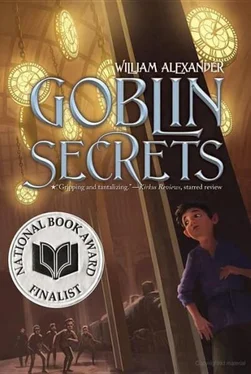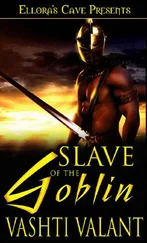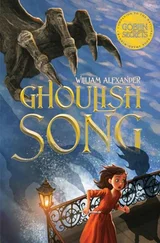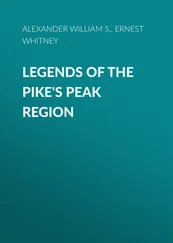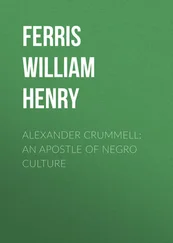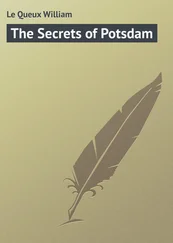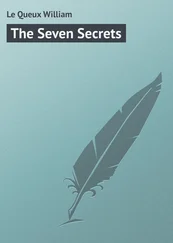The wagon finally rolled to a stop. A small hatch in the front wall opened.
“We’re here,” Thomas said through the hatch.
“Where’s here?” Essa asked, but he had already shut it again.
The whole wagon jittered while the gearworked mule folded back in on itself. Semele opened the door in the back wall and went outside. The others followed her. Rownie came last, but Essa stopped him in the doorway. She was still holding the sword.
“The Guard might be out there,” she said in her loud whisper, “and they’ll be unhappy with us if they see you, because Thomas said, ‘Nope, officer, we don’t have any idea where that mask-wearing boy might be, and he certainly isn’t hiding underneath our very own wagon.’ So keep hiding for just a second.”
She peered outside and looked unhappy. She whispered curses under her breath. They were decent curses, spoken with a decent rhythm. “May the Guard Captain grow hideous ear hairs, and may his glass eyes both turn the wrong way around.”
“Are they out there?” Rownie asked. “The Guard?”
“No,” Essa told him, “but the graves are. We’re in the litchfield.” She left the wagon.
Rownie took a good-sized breath. He knew that Graba sometimes sent Grubs to run errands in the litchfield and collect the sorts of things that grow in grave-dirt. Blotches always came back with stories about fighting off ghouls. Rownie was sure that Blotches had made up the fights, but Blotches might not have made up the ghouls.
Rownie tried to feel like a giant. He adjusted his brother’s coat on his shoulders and went outside.

THE WAGON STOOD IN AN OPEN stretch of grass, surrounded by graves. The gravestones were all worn and crooked, like teeth badly cared for. A single tree twisted its branches through the air nearby. Rownie could see crypts, mausoleums, and monuments packed close together near the gate, at the other end of the field where important people were buried. It looked like a small and separate city unto itself.
The rain had stopped. The clouds had broken up, and now they moved quickly. The sun was low in the sky. The air smelled like fresh mud.
“We’re spending the night here?” Rownie asked the others. Old ropes dangled from the gnarled and unfriendly looking tree. It was a hangman’s tree.
“We are, yes,” said Semele. “Tamlin cannot stay anywhere overnight within the proper city limits. Most of us, along with other sorts of Changed, camp far outside the city entirely—but we can also sleep in places that are not actually considered to be places. This is a place where living people come to visit dead people, so it will work very well as somewhere in-between and not exactly one thing or another thing.”
“Oh,” said Rownie. “What’s a Tamlin?”
“It is a more polite word than ‘goblin,’” said Semele.
“Oh,” said Rownie. “I heard that the sun will burn you up if you stay too long in one place.”
“Not so,” said Semele, “though we would become sunburned.”
The goblins began to bustle. They set up clotheslines and hung wet costumes up to dry. They built a fire and used it to boil a kettle of water. Rownie kept out of their way. He watched, and he wondered whether this was in any way a safe place to be. Not that he was accustomed to safety, but at least he knew the ways that Grubs and Graba were dangerous—or he used to believe that he knew. He thought about Grubs squinting at him with Graba’s look and calling to him with Graba’s voice. He remembered how little he actually knew about them, or their dangers.
After their bustling, the goblins all gathered together. Semele poured tea. Thomas brought out the bread basket.
“Let us see what sort of supper we can make from the materials at hand,” he said. “We have dried things and pickled things—preserved for emergencies against our starvation—and we have bread that young Kaile offered us at the Broken Wall, which was very kind of her. However, the whole of our provisions will make an unbecoming meal for artists of our stature and accomplishment.”
“Ate wild rat last winter,” said Patch.
“That was unbecoming also,” said Thomas.
“I kind of liked rat,” said Essa.
Thomas made a harrumphing noise. He took the basket around to each member of the troupe. The gentleman’s cane he carried stuck into the muddy ground a little as he walked, and he had to pull it free with every step.
“The bread also comes with a complimentary review of our performance,” Thomas said. “The girl especially enjoyed The Seven Dancers .”
“Oh good,” Essa said, “though we really should change that name. There’s only one of me.”
“You imply the others well enough,” Thomas said.
The basket came to Rownie, and Rownie cautiously reached in. He took a bread roll. His hand brushed against the bird mask that was still there.
He was, of course, hungry. The unpoisoned apple from the morning seemed like days and weeks ago. But he wondered what the dried and pickled things were. Maybe goblins ate moths and flowers. Maybe they ate children’s toes.
Did you eat what they gave you? Graba had asked him. Did you drink what they offered? He wondered what would happen to him if he did.
They passed around pieces of salted riverfish instead of children’s toes, and a few dried fruits instead of dried insects, and they sipped Semele’s tea from wooden mugs while Thomas strummed a song on a battered bandore. The bread was still warm from the Broken Wall bakery, and it was tasty enough to make him want to crawl inside a bed-sized loaf and fall asleep. The riverfish was salty and chewy and excellent. The tea was lemony and sweet.
Rownie was impressed that the goblins shared food more freely than anyone in Graba’s household ever did, and he resisted the urge to sneak some dried fruit into his only pocket. He could feel himself relax. His legs no longer prepared themselves to start running at any given moment. He stopped looking around for ghouls or the Guard. He let his toes warm up by the fire.
Then Thomas leaned toward Rownie. The old goblin did not pause in his playing, but he no longer seemed to be paying much attention to the song either.
“Tell me, young sir: Where in all the vastness of Zombay would your brother hide?”
Rownie coughed on a mouthful of tea, and spit most of it out again. Lemony droplets sizzled in the cook fire.
“Pardon the abrupt rudeness of my question,” Thomas said, “but we have been looking for Rowan with some concern. We had taught him the language of masks, and he spoke it very well—better than anyone else in that amateur and unChanged troupe of his. Then we left Zombay for an important piece of business, far downstream. We returned to find his troupe arrested and undone, and Rowan himself escaped but missing. The Broken Wall is the very last place he was known to perform. Do you have any notion where he might be hiding now?”
The circle of goblins all stared at Rownie with their large, bright-flecked eyes. Rownie tried not to cough again. The world had just changed shape, and he didn’t recognize the new shape it was in.
“You know my brother?” he asked.
“Yes, indeed,” said Thomas. “A fine fellow, and a respectful student, though he also had a sense of mischief appropriate to our profession.”
Rownie had as much trouble swallowing this as he had just had swallowing tea. He knew that his brother’s life and world were larger than Graba’s shack, but he didn’t enjoy the thought that he knew so very little about it, or that these goblins might know Rowan better than he did.
Читать дальше
